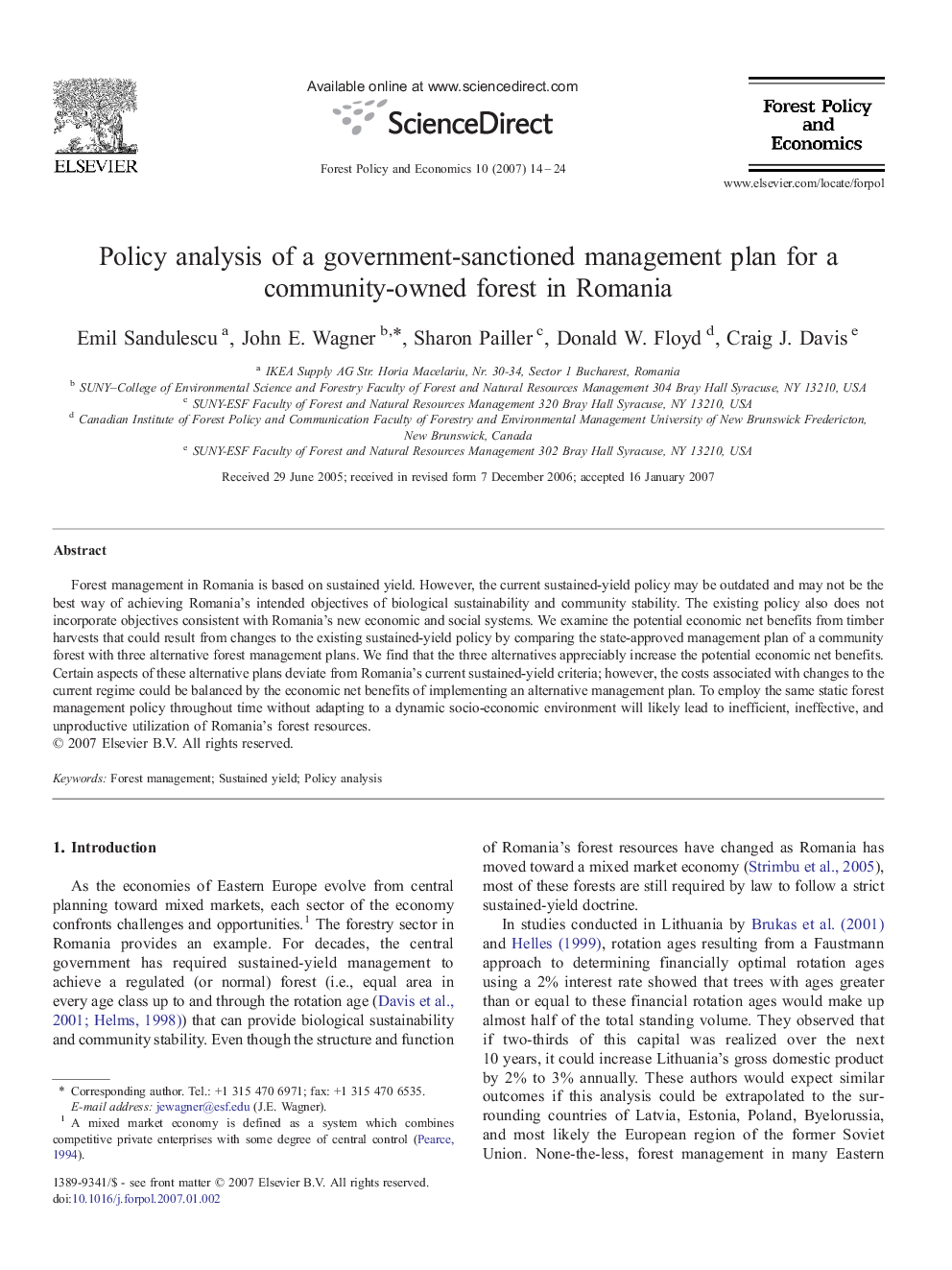| Article ID | Journal | Published Year | Pages | File Type |
|---|---|---|---|---|
| 91319 | Forest Policy and Economics | 2007 | 11 Pages |
Forest management in Romania is based on sustained yield. However, the current sustained-yield policy may be outdated and may not be the best way of achieving Romania's intended objectives of biological sustainability and community stability. The existing policy also does not incorporate objectives consistent with Romania's new economic and social systems. We examine the potential economic net benefits from timber harvests that could result from changes to the existing sustained-yield policy by comparing the state-approved management plan of a community forest with three alternative forest management plans. We find that the three alternatives appreciably increase the potential economic net benefits. Certain aspects of these alternative plans deviate from Romania's current sustained-yield criteria; however, the costs associated with changes to the current regime could be balanced by the economic net benefits of implementing an alternative management plan. To employ the same static forest management policy throughout time without adapting to a dynamic socio-economic environment will likely lead to inefficient, ineffective, and unproductive utilization of Romania's forest resources.
